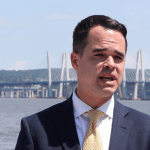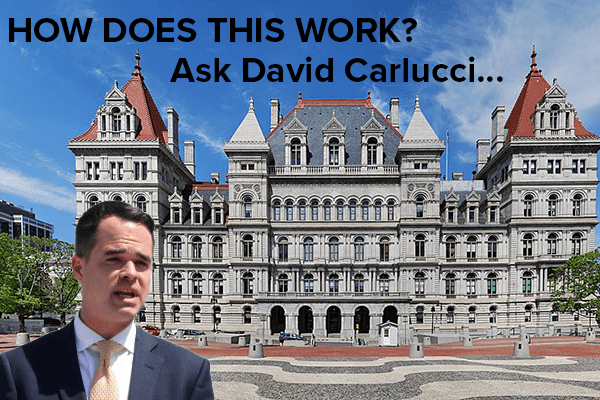|
RCBJ-Audible (Listen For Free)
|
Proponents Advocate For Necessary MTA Funding While Others Bemoan Adverse Impacts On Nearby Locales
By David Carlucci

On November 14th, 2024, Governor Kathy Hochul announced an update to New York City’s supposedly paused congestion pricing plan. This move marked a surprising turn of events in the city’s ongoing battle to reduce traffic congestion, meet its environmental goals, and invest in public transportation. By lowering the fee from $15 to $9, Hochul plans to implement this long-debated plan before President-elect Donald Trump’s inauguration.
Congestion pricing, first proposed in 2007 by former Mayor Michael Bloomberg, aims to reduce traffic by charging vehicles entering Manhattan’s busiest areas. Although the plan’s proponents argue that it will reduce gridlock, incentivize public transit use, and generate critical funding for MTA infrastructure projects, many worry that it is unaffordable and will redirect traffic demand to nearby areas.
After years of discussions and negotiations between the Governor, State Legislature, and City officials, congestion pricing was included in former Governor Cuomo’s 2019 State Budget. In 2023, the Biden Administration approved the plan, but congestion pricing remained dormant. Congestion pricing would face several short pauses until June 2024, when Governor Hochul announced an indefinite postponement of the plan.
According to Governor Hochul and many advocates against congestion pricing, the initial plan was unaffordable for New York commuters. That is why Hochul revised the plan this month to include reduced commuter fees, from $15 to $9. Still, even though decreasing fees may lower the impact on commuters, transportation officials worry that it will not correctly support the MTA’s capital plan. It is estimated that the reduced tolls would save some drivers as much as $1,500 annually while still generating funds to cover the MTA’s $15 billion capital plan adequately. Prices must remain in effect for three years, meaning lawmakers may raise the tolls if revenues do not meet the MTA’s goals.
Although Hochul’s revised plan appears to be a step forward in implementing congestion pricing, questions remain about whether legal and political challenges will diminish the program’s longevity. Over nine lawsuits have been filed in recent years, coming from advocacy groups like New Yorkers Against Congestion Pricing Tax, the United Federation of Teachers, and the Trucking Association of New York – and the state of New Jersey. Most of these suits argue that congestion pricing in Manhattan will inflict devastating environmental pollution on nearby communities.
In addition, former President Donald Trump has been a vocal opponent against congestion pricing, arguing that it will severely ruin business in New York City. On the 2024 campaign trail, Trump pledged to block the plan if it is implemented under his administration. Now, as President-elect, it is likely that Trump will reverse congestion pricing, even if it is implemented during the last months of the Biden Administration.
If Hochul does not manage to execute it before Inauguration Day, Trump could refuse to sign off. This would postpone the program until at least 2029 when a new President is inaugurated. Trump could also delay congestion pricing by revoking its environmental approval and requiring a revised environmental assessment. This would be extremely time-consuming, especially knowing that the new assessment would be under the purview of the Trump Department of Transportation.
If the program is up and running before Trump is in office, it will be slightly harder but not impossible for the 47th President to shut it down. Federal agencies have difficulty rescinding funding when the money is already being used. Still, Trump could withhold federal funding from New York to threaten the City with shutting down the program.
Even with Governor Hochul’s new proposal, the future of congestion pricing in New York City remains to be determined. City, state, and federal officials continue to address concerns about the potential impact on affordability, business, and the broader environmental well-being of surrounding communities. With the election of Donald Trump, implementation is on a tighter schedule.














